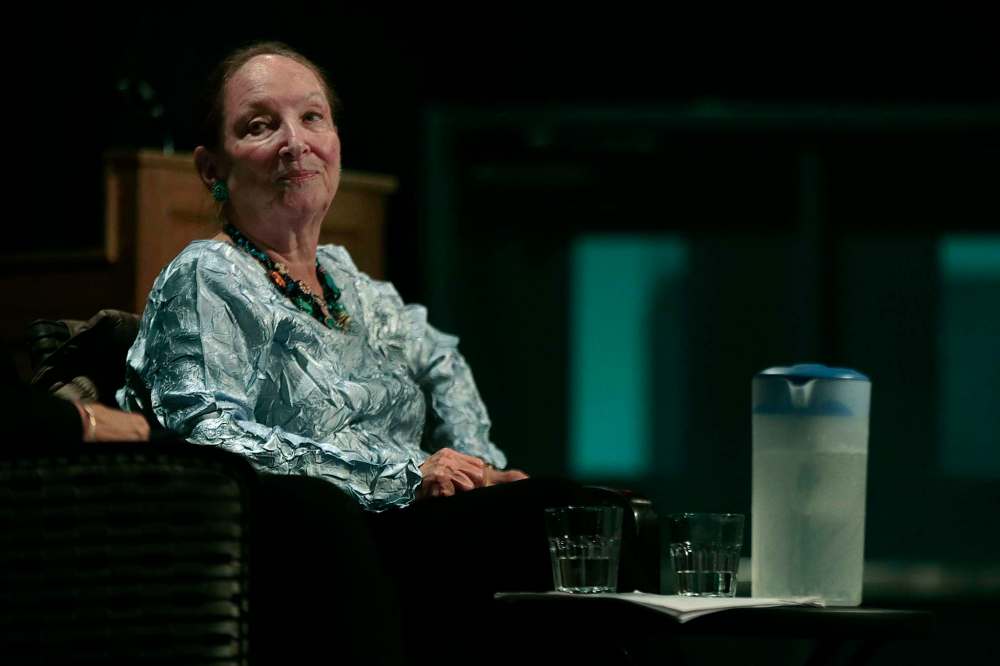Justice in time Historic Supreme Court of Canada hearing in Winnipeg to decide whether Manitoba judge's nine-month delay in delivering verdict was unreasonable
Read this article for free:
or
Already have an account? Log in here »
To continue reading, please subscribe:
Monthly Digital Subscription
$0 for the first 4 weeks*
- Enjoy unlimited reading on winnipegfreepress.com
- Read the E-Edition, our digital replica newspaper
- Access News Break, our award-winning app
- Play interactive puzzles
*No charge for 4 weeks then price increases to the regular rate of $19.00 plus GST every four weeks. Offer available to new and qualified returning subscribers only. Cancel any time.
Monthly Digital Subscription
$4.75/week*
- Enjoy unlimited reading on winnipegfreepress.com
- Read the E-Edition, our digital replica newspaper
- Access News Break, our award-winning app
- Play interactive puzzles
*Billed as $19 plus GST every four weeks. Cancel any time.
To continue reading, please subscribe:
Add Free Press access to your Brandon Sun subscription for only an additional
$1 for the first 4 weeks*
*Your next subscription payment will increase by $1.00 and you will be charged $16.99 plus GST for four weeks. After four weeks, your payment will increase to $23.99 plus GST every four weeks.
Read unlimited articles for free today:
or
Already have an account? Log in here »
Hey there, time traveller!
This article was published 24/09/2019 (2270 days ago), so information in it may no longer be current.
When the Supreme Court holds its first hearing in Winnipeg Wednesday, the panel of high-court justices will have to consider the role judges play in causing institutional court delays across the country.
“This is a live issue across the country. There were a number of cases in a number of jurisdictions that were trying to go to the Supreme Court of Canada. Ours happened to get there first,” said Kathy Bueti, a Winnipeg defence lawyer who is set to appear in front of the Supreme Court to argue the only Manitoba case the judges will hear during their historic visit.

For the first time since its landmark 2016 Jordan decision set strict trial timelines that were aimed at speeding up criminal cases and getting rid of severe backlogs within Canadian courts, the Supreme Court will hear a case that asks whether judges should be held accountable for the time they spend reaching their decisions.
It’s a question Canada’s highest court hasn’t yet dealt with, but it’s one the chief justice of Manitoba’s Court of Queen’s Bench has already issued a ruling on. In 2017, Chief Justice Glenn Joyal decided the Jordan timelines shouldn’t apply to judges’ decisions, to protect their judicial independence.
The Supreme Court’s answer to this question, expected to come several months after Wednesday’s historic hearing in Winnipeg, will trump all lower court rulings and is set to have a nationwide effect on the justice system.
The timelines the Supreme Court set three years ago look only at the length of a criminal case from the date of someone’s arrest to the end of their trial, not the time it takes for a judge to issue a decision afterward. Crown and defence lawyers can be held responsible for causing delay under the current process, but the high court didn’t make clear how judges are affected.
Under those rules, trials that aren’t finished within 18 months for provincial court cases or 30 months in superior courts can be tossed out for unreasonable delay. When that happens, the people accused of crimes have their charges effectively dropped.
“We have to hold the judiciary to a higher standard, and they have to be held accountable. I don’t know what that standard is going to look like, but there has to be something in place, because when there’s one part of the judicial system that’s not being held accountable, that’s when the problems occur,” Bueti said. “And that’s how this case came to be before the courts.”

The Manitoba case involves a man identified only by the initials K.G.K., who was found guilty of sexual interference against his step-daughter. A court-ordered publication ban covers the man’s name to protect the identity of the victim, who was under 16 years old at the time.
K.G.K. was charged in April 2013, and the case went to trial in Manitoba’s Court of Queen’s Bench starting in January 2016. After the trial, nine months passed before Justice Gerald Chartier delivered his decision. He convicted K.G.K. on Oct. 25, 2016, a day after the man’s defence lawyer filed a motion to argue there had been unreasonable delay.
Joyal dismissed the delay motion. There may be some cases in which delay at the hands of a judge is unreasonable, he decided, but this was not one of them.
“It need be recognized that judicial delay which may be “undue,” is nonetheless not necessarily delay which is constitutionally unreasonable. In most cases, judicial delay in the rendering of a decision will remain an ethical not a juridical matter,” Joyal wrote in his 2017 decision.

Bueti appealed Joyal’s decision on K.G.K.’s behalf, and from there the case went to Manitoba’s Court of Appeal. Two out of three appeal judges agreed K.G.K.’s rights hadn’t been violated because of the delay. But Justice Barbara Hamilton decided in a February 2019 ruling that judges’ decisions should fall within the Jordan timelines. When Appeal Court judges disagree, the case can go automatically to the Supreme Court of Canada, where it has now landed.
Bueti said she wasn’t given an explanation about why Chartier took nine months to render his decision. When he did, he read it aloud in court and never issued a written version. Her client has been on house arrest for years while he waits for a decision, and the complainants have been anxious for closure.
“Everybody wants to know where they stand; they want to know sooner than later,” she said.
K.G.K.’s case is the first of two that will be heard during the Supreme Court’s visit to Winnipeg this week. The second, a case from B.C. that will be argued in French Thursday, deals with the issue of language rights in schools. The public is invited to attend both hearings, which will be held at the downtown Law Courts building starting at 9:30 a.m.
katie.may@freepress.mb.ca
Twitter: @thatkatiemay

Katie May is a general-assignment reporter for the Free Press.
Our newsroom depends on a growing audience of readers to power our journalism. If you are not a paid reader, please consider becoming a subscriber.
Our newsroom depends on its audience of readers to power our journalism. Thank you for your support.










